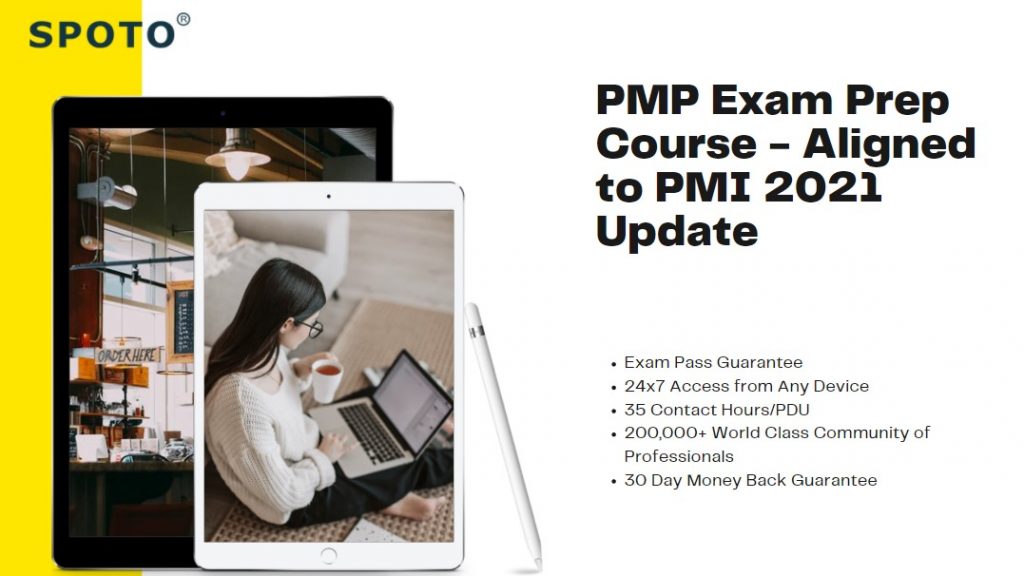Nowadays, the PMP credential examination is regarded as one of the most difficult in the world. The Project Management Institute (PMI) administers this exam, which is one of the world’s largest not-for-profit membership associations for the project management profession, with over 650,000 members and credential holders in over 185 countries. The PMP exam consists of 200 multiple-choice questions, each with four answers. Twenty-five of the 200 questions is pretest questions.
Pretest questions have no effect on the candidate’s score and are used in exams to increase the number of exam questions that can be used in future PMP certification exams. The exam’s passing score is nearly 61 percent (106 questions correct out of 175 scored questions). To succeed in this examination, you must perform exceptionally well in the examination; you must prepare thoroughly. Many people may suggest various methods for achieving success in this exam or preparing for the exam, but you must be aware of the standard methods for passing this exam. What exactly are they? I’ll go over some tried-and-true methods for preparing for this exam.
Collect as much information as you can. Talk to your friends and coworkers who have already passed this exam. Learn more about your eligibility to take this exam. I’ve heard of candidates attending 35-hour Professional Development Units (PDU) without knowing the actual requirement for this exam. Check the same thing in your case. Find a study group, that is, a group of candidates who are going to take this exam and participate in it. It will increase your odds of success.
Choose a good training center that can provide PMP Prep training and award you 35 PDUs for completing the training successfully. Choose the best training center because it will be the starting point for your preparation, and a good training center will be able to guide you in the right direction. Follow the training religiously, and attend the training faculty’s lectures because these lectures contain a lot of information that is not available in books. Take it in a positive light.
After completing the PMP Prep training, set aside a significant amount of time for preparation. Ideally, you should have 45-60 days to complete the preparation. Smartly balance your office work and exam preparation. You must manage both, so proceed accordingly.

Because the Project Management Body of Knowledge (PMBOK) contains nine knowledge areas, divide the number of days available for preparation into knowledge areas. Ideally, you should set aside at least three days for each knowledge area. This will keep you in sync and will give you more confidence in your understanding of the methodologies.
We are clearly strong in some areas and weak in others. You may be very good in six of the nine knowledge areas and poor in three. Try to keep these in balance on a single platform. You must put in extra effort in your weak areas so that they do not have an impact on your exam results. Otherwise, the outcome may be skewed. Try to strike a balance between your strong and weak points.
Don’t jump right into the questions if you haven’t fully grasped the concepts in the knowledge areas. Going straight for the questions without first thoroughly understanding the subject is a bad idea. So keep an eye out for these issues. Go for the knowledge areas, study methodically, clear your doubts, gain confidence, and then go for the questions. If you are still having difficulty answering the questions, return to the knowledge area study.
Determine which knowledge area is critical. For example, you may believe that risk management is extremely important because it is directly related to time management, cost management, and even scope management. So, as soon as possible, try to understand the relationship between the knowledge areas. Based solely on this relationship, you may receive a slew of inquiries.
Try to memorize the formulas in the simplest way possible, focusing on Earned Value and PERT. Don’t memorize in the same way you did in school. Think analytically, as Earned Value (EV) comes first in Earned Value formulas. Memorize in this manner. Based on these formulas alone, you can expect 10-15 questions.
Conclusion
Based on the preceding discussions, I am confident that an individual will benefit if he or she adheres to it religiously. Give it a shot! Feel confident and keep these pointers in mind as you prepare for the exam.





